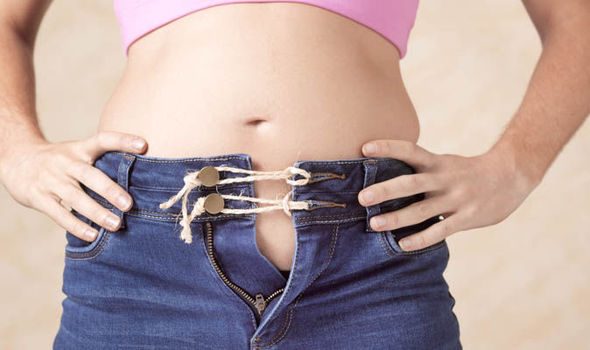What are the Best Probiotics for Bloating?
Probiotics are friendly or good bacteria that occur naturally in the human body and some of the most popular products on the market are probiotics for bloating. There are many commercial products available in the market, which contain probiotics as a supplement.
Researchers point out to a number of advantages of including probiotics in your diet.
Reducing bloating is one of the key health benefits that certain types of probiotics have and it is a great answer if you are looking how to reduce bloating. This guide will help you understand how probiotics for bloating can restore your gut to full health and slim down in the process.
Let us first take a look at what exactly are probiotics and what are the causes of bloating.
Evivo Probiotics For Bloating
What are Probiotics?
Lately, probiotics for bloating have become a talking point in the mainstream health media for their numerous benefits. There are more than 500 species of microorganisms present in the human body. Probiotics are the good bacteria, which are naturally found in areas such as the digestive system, mouth, and vagina.
They assist the human body in carrying out a number of essential functions ranging from better digestion to nutrient absorption. All bacteria tend to multiply and grow. An imbalance between the good bacteria and bad bacteria can cause problems such as stomach ailments, bloating, water retention and even diarrhea.
Probiotics help by reducing the number of bad bacteria in the body. Different strains of probiotics aid the digestive system differently.
What is Bloating?
The term bloating is often used interchangeably with water retention. However, these are actually different conditions.
Bloating refers to an uncomfortable feeling of fullness in the stomach area especially after a meal. It is usually caused by disturbance in the movement of digestive muscles and excessive gas production.
Simply put, bloating can be described as the presence of an excessive amount of solid, liquid, and gas in your stomach that makes you feel uncomfortable. It can also cause abdominal pain. More than 45% adults in the country experience bloating occasionally.
Luckily, there are a lot of probiotics for bloating available to you on the market, but we’ll get into that a little bit later.
What Causes Bloating?
There is no one simple or precise answer to this question. However, one of the major causes of bloating is dietary habits and lifestyle.
You are more prone to bloating when you maintain a sedentary lifestyle and have poor dietary habits. Some people suffer because of intolerance to various food groups. Gluten and lactose are common food intolerance.
Another major cause of bloating is Small Intestinal Bacterial Overgrowth (SIBO). There are both good and bad bacteria in the digestive system which perform various functions. An imbalance can cause severe digestive problems.
Methanobacteriales such as Methanosphaerastadtmanae and Methanobrevibactersmithii can synthesize methane in the small intestine causing gas build up. This produces a sensation of immense pressure on the digestive organs that leads to bloating.
Unbalanced gut microbiome is one of the major reasons for most digestive issues. Bacterial balance in the gut can be disrupted due to a number of factors such as travel, poor diet, stress, and medication among other things.
This is one of the reasons why doctors always recommend probiotics in the form of dietary supplements or yogurt with antibiotics.
How Can Probiotics for Bloating Help?
Studies show that a number of probiotic strains can help with bloating and other digestive problems.
Bloating is usually accompanied by other digestive issues such as abdominal cramps, irritable bowel syndrome, intestinal gas, ulcers, and chronic stomach inflammation among others. A healthy gut is critical to a good digestive system. And probiotics for bloating is a quick and easy way to improve your gut health.
Two probiotic strains, Bifidobacteriumlactis and Lactobacillus acidophilus, have been directly associated with reducing bloating. It is accepted in the medical world that a balanced gut microbiome can alleviate most digestive problems. This in turn helps in preventing or alleviating stomach bloat.
Probiotics for bloating essentially restore the gut balance in your body. If you are not in the habit of maintaining a healthy diet, then chances are that the good bacteria in your system are seriously low. This can cause other major problems in addition to digestive issues.
Probiotic Sources
There are a number of natural sources as well as commercial options such as when it comes to probiotics for bloating:
Natural Sources
Different probiotic strains occur in different kinds of fermented food. It is recommended that your is diet is rich and deep. Yogurt, soy drinks, miso, and juices are good source of probiotics. Coke and Pepsi – that is about the worst stuff you can put in your body.
Other options include Sauerkraut, kefir, pickles, and kimchi (the latter is terrible when it comes to taste and smell, there is much better types of Korean food – but kimchi is very healthy).
Cheese variants such as gouda, parmesan, cheddar, and Swiss are also good natural sources and natural ways to reduce bloating.
Supplements
You can make it easier on your lifestyle by simply including probiotic dietary supplements. A pill a day can go a long way in maintaining gut balance and reducing bloating. However, you need to make sure that you pick the right strains.
If you are including probiotics in your diet to specifically combat bloating then you should consider a supplement which has strains of both Lactobacillus and Bifidobacterium.
Bacterial strains that you should look out for includeBifidobacteriumlactis, Lactobacillus rhamnosus, Bifidobacteriuminfantis, Lactobacillus salivarius, Lactobacillus acidophilus, Lactobacillus sporogenes, Lactobacillusgasseri, Streptococcus thermophiles,Lactobacillus plantarum and Bifidobacteriumlongum. Many manufactures make it easy by listing out the strains and their benefits on the label.
There are a number of brands that offer customizable options as well. You can have a probiotic cocktail that is designed specifically for your digestive health. See our list of top probiotics reviews.
How to Reduce Bloating by Including Probiotics Into Your Diet.
Probiotics are generally safe to consume. However, if you suffer from any allergies or are currently ill, then it is recommended that you speak to your doctor before making any related dietary changes.
More is not always better and you should always ease your body into a change. In the first few days bloating might actually increase. However, this only signifies that your gut health is improving.
It is important that you consider all other factors that cause bloat and change your lifestyle accordingly. Many studies have proven the benefits of a low FODMAP diet. Your gut is most active in the morning. Hence, it is best to take a probiotic pill on an empty stomach in the morning or right after a meal.
Conclusion
Probiotics for bloating are slow acting and you might not be able to see immediate results. However, over time you will notice sustainable effects of including probiotics in your diet.
If you suffer from chronic bloating, then it is a better to contact the doctor for a correct diagnosis. But if your bloating occurs due to a sedentary lifestyle, an unbalanced diet, or other similar causes then probiotics can be a great help in reducing bloating.










